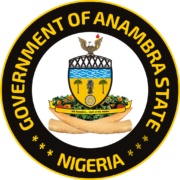- +2348084141850
- Today: 08.00 to 16.00
Contact Us Now
Contact Info
- Jerome Udorji Complex, State Secretariat, Awka, Anambra State
- +2347084141850
- moe@anambrastate.gov.ng
Account Department - Anambra Ministry of Education
- Home
- Account Department

01Jun’21
The Account Department within a Ministry of Education is responsible for managing financial matters and resources related to the education sector. Its functions involve budgeting, financial reporting, fund allocation, and ensuring transparency and accountability in financial transactions. Here are some common functions of the Account Department in the Ministry of Education:
Budget Preparation: Collaborating with other departments to develop the ministry’s budget, allocating funds to various programs, projects, and initiatives within the education sector.
Financial Planning: Creating financial plans and strategies to ensure efficient use of resources, cost-effectiveness, and alignment with educational goals.
Fund Allocation: Allocating funds to schools, universities, colleges, and various education-related projects based on budgetary allocations and priorities.
Expenditure Tracking: Monitoring expenditures to ensure they adhere to budgetary allocations and that funds are spent appropriately and efficiently.
Financial Reporting: Preparing regular financial reports, statements, and summaries to provide transparency and accountability in the use of funds.
Audit Compliance: Coordinating with internal and external auditors to ensure compliance with financial regulations, policies, and reporting requirements.
Payment Processing: Overseeing the processing of payments, invoices, and financial transactions related to education expenses, salaries, and procurement.
Revenue Collection: Managing the collection of revenues from sources such as tuition fees, grants, and donations, and ensuring accurate recording and tracking.
Financial Analysis: Conducting financial analysis and forecasting to support decision-making, identify trends, and evaluate the financial health of the education sector.
Budget Monitoring: Monitoring budget execution, analyzing variances, and making adjustments as necessary to ensure financial goals are met.
Cash Flow Management: Managing cash inflows and outflows to ensure that financial obligations are met and that funds are available when needed.
Grants and Funding: Administering grants and funding received from government sources, international organizations, and other entities to support education initiatives.
Asset Management: Managing and maintaining an inventory of assets owned by the education sector, including buildings, equipment, and facilities.
Procurement Oversight: Overseeing procurement processes to ensure transparency, fairness, and compliance with procurement regulations.
Payroll Administration: Administering payroll processes to ensure accurate and timely payment of salaries to education sector employees.
Financial Policies: Developing and implementing financial policies, procedures, and controls to ensure responsible financial management.
Financial Accountability: Ensuring that financial transactions are properly documented, recorded, and audited to maintain accountability and transparency.
Financial Compliance: Ensuring compliance with financial laws, regulations, and accounting standards within the education sector.
Financial Training: Providing financial training and guidance to department staff and stakeholders to enhance financial literacy and understanding.
Coordination with Other Departments: Collaborating with other departments within the Ministry of Education to align financial activities with educational objectives and priorities.
In summary, the Account Department in the Ministry of Education plays a crucial role in managing and safeguarding financial resources, ensuring that funds are allocated and utilized effectively to support the development of the education sector
